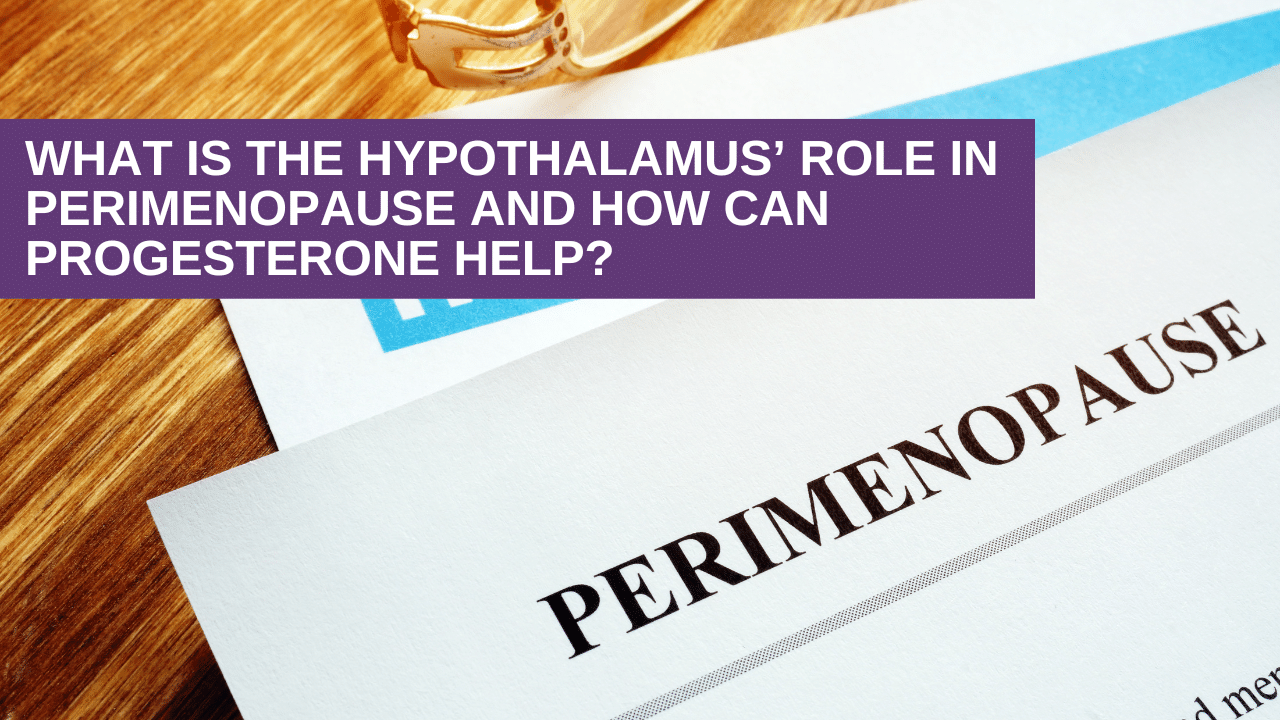What is the hypothalamus’ role in perimenopause and how can progesterone help? Let’s talk about it.
Perimenopause is the 5 to 15 years before menopause when you have your very last period.
At that time your hormone levels are fluctuating drastically but the hormone that is most affected is progesterone. You can develop estrogen dominance because your estrogen levels are not falling as fast as your progesterone.
Low progesterone can cause irregular periods, and increased premenstrual symptoms including:
- bloating and breast tenderness
- moodiness
- cravings
- fatigue
- gut symptoms like constipation
- diarrhea
- indigestion
- and gas
You may even start having hot flashes and experiencing insomnia.
Your hypothalamus is what controls your ovarian production of hormones. When your hypothalamus becomes dysfunctional, you start having symptoms of hormonal imbalance.
Supporting your hypothalamus throughout perimenopause, with Genesis Gold® can help to ameliorate the symptoms and help prolong your ovarian lifespan.
Some women in perimenopause may need supplemental progesterone.
Progesterone is used in the luteal phase or the second half of the cycle from ovulation until menstruation. It helps regulate your periods and balance out the estrogen dominance of perimenopause.
I have been using a prescription-grade transdermal progesterone now called Gen-Pro in my patients for over three decades. Along with hypothalamic support, Gen-Pro has worked incredibly well to balance out perimenopausal symptoms.
Most of my perimenopausal patients use anywhere from 50 to 100 milligrams of progesterone. Sometimes up to 200 milligrams, twice a day in their luteal phase to help regulate their menstrual cycles and balance out estrogen dominance symptoms.
The luteal phase starts at the time of ovulation about the time you see the spinbarkheidt – that sticky, egg white like vaginal discharge – until menstruation so about 10 to 14 days. Stopping the progesterone after 14 days usually induces a period within two to seven days.
Day one of your cycle is the first day of your period. Supporting your hypothalamus with Genesis Gold® during this time helps to minimize the symptoms of perimenopause and supports your adrenal glands which become incredibly affected by the hormonal imbalances. Using Gen-Pro helps to maintain hormonal balance through the change.
If you’d like to learn more, my new book The Hypothalamus Handbook goes into detail about hypothalamic dysfunction and during the change.
I also have a book called The Menopause Action Plan which helps you formulate a healing plan from premenopause through postmenopause including exactly what hormones you may need to support yourself during the during the change.
And of course, Genesis Gold® for hypothalamus support, and Gen-Pro is available for supplemental progesterone support until you need full support in menopause.
Join us in our Hormone Reboot Training for more information.

Resources:
Progesterone in Peri- and Postmenopause: A Review; P.-A. Regidor; Geburtshilfe Frauenheilkd. 2014 https://www.ncbi.nlm.nih.gov/pmc/articles/PMC4245250/



0 Comments